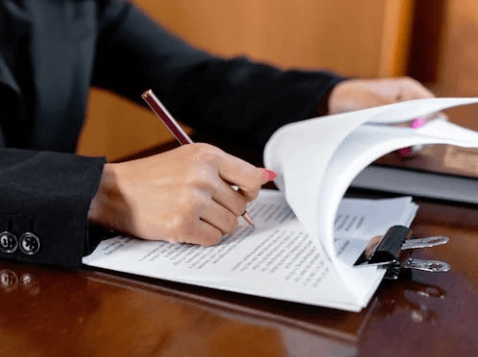Welcome to our in-depth exploration of “Protect Your Assets: The Importance of Private Property Rights in Florida.” This blog is designed to shed light on the pivotal role that private property rights in Florida play in the lives of homeowners and investors alike. Understanding the landscape of private property rights in Florida is crucial for anyone looking to secure their investments and safeguard their future in the Sunshine State. Our discussion will guide you through the nuances of navigating property rights, the implications for real estate transactions, and the broader economic impact these rights have on Florida’s prosperity. Join us as we unravel the significance of protecting your assets through the vigilant application of private property rights in Florida.
Steve Daria and Joleigh have shown a remarkable understanding of real estate investment, especially in Florida’s vibrant property market. Their success underscores the critical importance of private property rights, which serve as a foundation for securing investments and fostering economic growth. These rights not only protect their assets but also ensure the liberty to use and develop properties in ways that best serve their interests and the community’s needs.
Key Points
- Understanding Private Property Rights: Private property rights ensure that individuals can own, control, and use their property as they wish, within legal limits. Protecting these rights allows owners in Florida to safeguard their investments and make personal decisions about their land or home.
- Legal Protection Against Unlawful Seizure: Private property rights in Florida protect you from unlawful government or private entity actions like seizure or destruction of your land. These protections ensure that your property cannot be taken without proper legal process and fair compensation.
- Encourages Investment and Development: When property owners know their rights are protected, it motivates them to invest and improve their land. Secure private property rights help create economic growth while also increasing the value of individual properties.
- Resolving Disputes and Conflicts: Clear property rights reduce conflicts with neighbors, businesses, and local authorities. They provide legal guidelines that help resolve disputes fairly and ensure owners retain proper control of their assets.
- Preservation for Future Generations: Private property rights enable families to pass down land, homes, or businesses to future generations. By maintaining these rights, property owners can preserve wealth and maintain the stability of family assets over time.
The History and Legal Framework of Private Property Rights in Florida
Private property rights in Florida are deeply rooted in historical events and legal doctrines that aim to protect individuals from overreach by the state and other entities.
Arising from the United States Constitution, particularly the Fifth and Fourteenth Amendments, private property rights in Florida are further solidified through the state constitution and a substantial body of Florida case law that has evolved.
Florida upholds property rights as fundamental, subject to rigorous scrutiny against government intrusion. This framework safeguards the right to own, enjoy, and dispose of property.
It provides a powerful shield for property owners in Florida, ensuring that any regulation of property meets a necessary public purpose and provides just compensation to the owner.
Historically, Florida’s position on private property rights has shifted from frontier individualism to a modern, balanced approach where regulations are accepted, and just compensation is the safety net against undue hardship.
Notably, the ‘Burt Harris Act’ of 1995, a landmark in protecting property rights, is a shining example and a model for other states.
Key Provisions and Implications for Property Owners
The new legislation in Florida enhances private property rights by providing owners with more robust protection against eminent domain and reducing regulatory constraints on land use.
These changes secure an owner’s claim and control over their property and increase land value by expanding the possibilities for development and use.

The Takings Clause: Balancing Act Between Public Interest and Property Rights
The ‘Takings Clause’ of the Fifth Amendment stipulates that private property shall not be taken for public use without just compensation.
This principle is reflected in Article X, Section 6 of the Florida Constitution, which mandates that property owners be compensated when regulations restrict the “reasonable, viable, and economic use of real property.”
This clause has far-reaching implications for property owners, especially when facing land-use restrictions, such as zoning ordinances, environmental regulations, or eminent domain actions.
Understanding when a “taking” occurs and how to seek just compensation is essential for anyone whose rights may be affected.
Government’s Role in Safeguarding Property Rights
The Florida Legislature has enacted several statutes to protect property rights, including Chapter 70, the Land Use and Environmental Dispute Resolution Act.
This statute provides a framework for resolving disputes between property owners and government agencies and ensures that land-use decisions are made with due process and consideration for property rights.
Additionally, Florida’s comprehensive planning, zoning, and growth management laws aim to harmonize property owners’ rights with the broader community’s interests in safety, welfare, and quality of life.
For instance, the state’s unique density reduction/greenbelt laws have led to a more thoughtful approach to land development that seeks to balance conservation with urban growth.
Navigating Property Rights in Real Estate Transactions
Understanding private property rights is critical when engaging in real estate transactions. Whether buying, selling, or managing property, knowledge of these rights can result in a smoother, more satisfactory experience.
Protecting Your Interests in Real Estate Contracts
When purchasing real estate in Florida, the contract is king.
Ensuring your rights are protected in the contract is the first step to safeguarding your investment.
Including clauses that address contingencies, title issues, and inspection rights can prevent disputes and protect your financial interests.
Zoning and Land Use Regulations
Zoning laws are enacted locally and specify how property can be used.
They dictate the type of structures that can be built, the allowed use (residential, commercial, industrial), and the density of development.
Adhering to these regulations is vital, as breaches may result in substantial fines, delays, or impede the property’s intended use.
Eminent Domain and Inverse Condemnation
Eminent domain grants the government the authority to acquire private property for public purposes, ensuring fair compensation is provided.
In Florida, the procedure is transparent, ensuring that property owners have the right to a hearing regarding the property’s valuation.
In contrast, ‘inverse condemnation’ happens when the government’s action de facto ends the private property’s value or use, thereby requiring compensation.
Environmental Protection and Property Rights
Florida has some of the country’s most stringent environmental protection laws aimed at preserving its unique ecosystems while allowing for responsible development.
This balance can lead to complex regulatory challenges for property owners, requiring them to comply with wetlands protection, coastal management, and endangered species regulations, to name a few.
Preserving Property Rights in the Face of Adversity
Even with robust legal protections, property rights can sometimes be threatened. Knowing how to respond to such challenges is essential for preserving one’s assets.
Legal Remedies for Property Rights Violations
When property rights are violated, property owners have legal remedies available. These can include seeking injunctive relief to halt damaging actions, filing a lawsuit for damages or compensation, or pursuing administrative or judicial review of governmental decisions that infringe on their rights.

The Power of Community and Advocacy
Individual property owners don’t have to face rights violations alone.
Joining or forming community groups, enlisting the help of advocacy organizations, or even lobbying for legislative change can enhance the protection of private property rights.
The Economic Impact of Strong Property Rights
The connection between private property rights and economic prosperity cannot be overstated.
Clear and enforceable property rights are vital for fostering investment, encouraging responsible development, and creating a stable financial environment in Florida.
Investment and Development
Investors are more inclined to commit funds to projects and businesses when they have confidence that their property rights are secure.
This increases economic activity, job creation, and a thriving real estate market.
Entrepreneurship and Wealth Creation
Strong property rights are an engine for entrepreneurship. They allow individuals to start businesses, use their property as collateral for loans, and retain the fruits of their labor, which are essential for creating and preserving wealth.
Environmental and Community Stewardship
Property rights are often aligned with the duty of stewardship.
In Florida, where the natural environment is a significant draw, property owners act as responsible custodians when they understand and have a stake in the land they possess.
This leads to better environmental outcomes and more vibrant, well-maintained communities.
Conclusion
Private property rights are not just a legal construct; they represent a fundamental aspect of the Floridian way of life. Understanding, protecting, and promoting these rights is essential for safeguarding individual liberty, encouraging economic growth, and maintaining a beautiful and bountiful state.
For current and future property owners in Florida, the importance of private property rights cannot be overstated. In a swiftly changing legal and regulatory environment, remaining informed, involved, and ready is critical to safeguarding these freedoms against potential threats.
Ultimately, the strength of Florida’s private property rights ensures that its residents will continue to enjoy the benefits of ownership, stewardship, and pursuing the American dream for generations to come.
